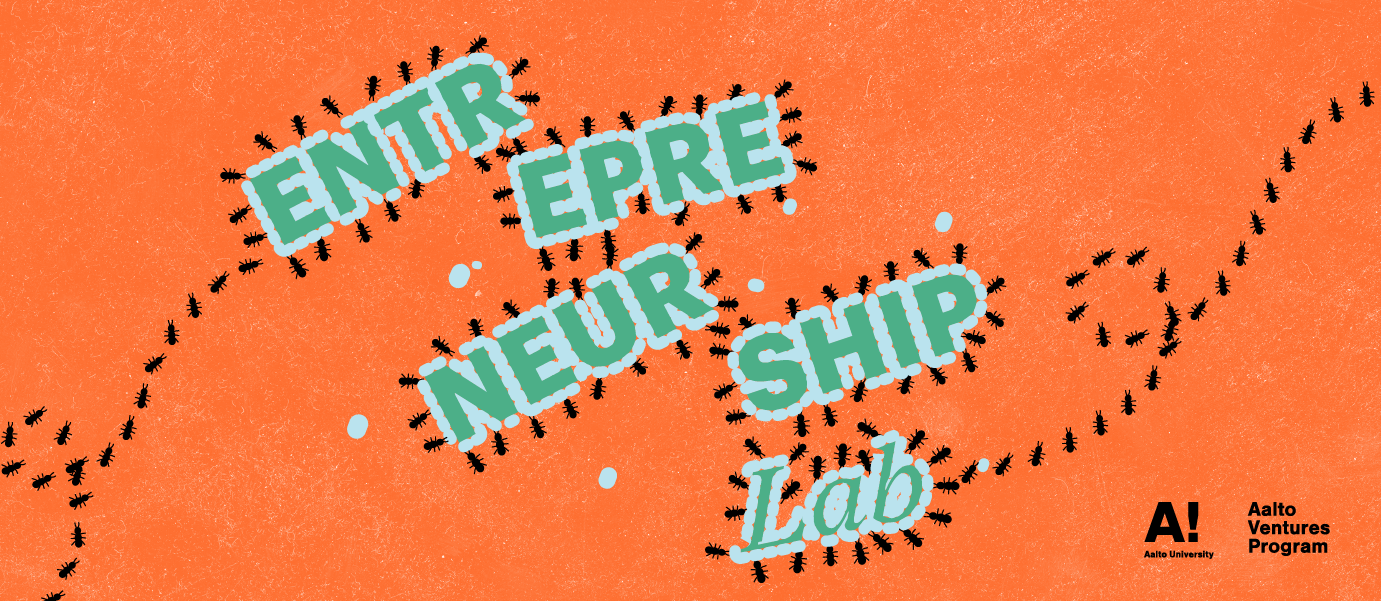
LEARNING OUTCOMES
Entrepreneurship Lab teaches students how to identify, explore, validate and develop product and opportunities for scalable business. Course provides students both insight and experience in the entrepreneurial process by combining key aspects of entrepreneurship: 1) discovering business opportunities and creating customer value, and 2) setting up and managing the organization for delivering the customer value.
The course is build on an experiential, hands-on process which provides exposes students (as far as possible) to real-world challenges and overcoming them using the entrepreneurial process. The course consists mostly of workshops and hands-on team assignments based on self-developed venture ideas.
After the course, the students will be able:
- To identify sustainable and scalable business opportunities
- To apply knowledge about marketing, user research, idea validation, experimentation and prototyping, and financial literacy for one s endeavor
- To work in and lead diverse teams
- To work effectively with different tools for team working
- To take ownership and responsibility for one s own work
- To develop self-awareness and self-management skills, including time management and personal wellbeing
- To communicate the value of products and ventures
- To think outside the box and be more innovative
- To cope with challenge and know how to fail & pivot after having practiced resilience in a safe environment
- To critically assess products, business opportunities, and their effects through ethical and sustainable lenses
Credits: 10
Schedule: 04.09.2024 - 28.11.2024
Teacher in charge (valid for whole curriculum period):
Teacher in charge (applies in this implementation): Duy Tran, Lidia Rauramo
Contact information for the course (applies in this implementation):
CEFR level (valid for whole curriculum period):
Language of instruction and studies (applies in this implementation):
Teaching language: English. Languages of study attainment: English
CONTENT, ASSESSMENT AND WORKLOAD
Content
valid for whole curriculum period:
Experience what it s like to found and run a startup, without actually having to set up a company. During this course you will learn the essentials of entrepreneurship: user-centered product and service design, business ethics and sustainability, opportunity recognition, business modeling, teamwork, pitching, startup finance and marketing. That is, everything you need to navigate the fast-paced and unpredictable commercial environment, or even become a founder.
While the focus of the course is on setting up a new business as a startup, the skills you will learn are equally valuable in the context of existing companies. The course will suit a person who is adaptive, collaborative and creatively driven and is interested in going beyond conventional thinking to create effective teams and commercial value.
During the course, students work in teams that together go from initial problem definition all the way to a minimum viable product. Teamwork is one of the main learning skills of the course and simultaneously one of the biggest challenges for students. Throughout the course students will have team dynamic clinics and reflections to support the teamwork. Students will also learn about time management and focus on personal wellbeing. By the end of the course, students will not only have created a new venture but also gone through the project in a sustainable way.
Assessment Methods and Criteria
valid for whole curriculum period:
The course is graded based on both team and personal performance.
Team performance is measured based on for example:
The customer value creation process (presented in a work portfolio)
Key company deliverables (including marketing campaign, shareholders agreement, etc.)
Personal performance is evaluated based on for example:
Facilitator performance (each student will act as the team facilitator for a specific assignment, the student's performance in the assignment is based on the outcome of the assignment as well as a personal reflection on the management process and learning)
Final individual oral exam
Workload
valid for whole curriculum period:
Lectures/workshops; groupwork
DETAILS
Study Material
valid for whole curriculum period:
Online materials distributed via MyCourses
Substitutes for Courses
valid for whole curriculum period:
Prerequisites
valid for whole curriculum period:
FURTHER INFORMATION
Further Information
valid for whole curriculum period:
Teaching Language: English
Teaching Period: 2024-2025 Autumn I - II
2024-2025 Spring III - V
2025-2026 Autumn I - II
2025-2026 Spring III - VRegistration:
The number of participants will be limited.
Students for whom the course is mandatory are prioritized:- Master's programme in Sustainable Entrepreneurship
- Master s Programme in ICT Innovation
- Master's Programme in Advanced Materials for Innovation and Sustainability
- Master’s Programme in Urban Mobility
- Master’s Programme in Manufacturing
- AVP Startup Minor
